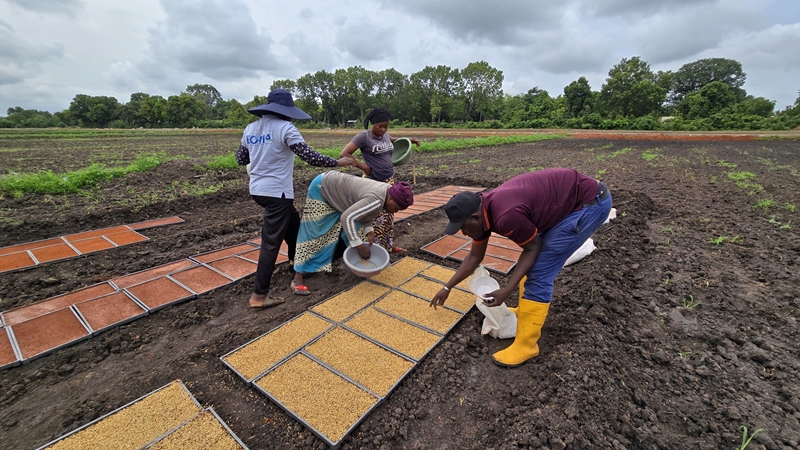
Farmers in Senegal sow rice seeds. (Ministry of Agriculture, Food and Rural Affairs)
By Koh Hyunjeong
The K-Ricebelt project, which uses domestic technology to resolve food shortages in Africa, has gained global notice for its better-than-expected results.
The Ministry of Agriculture, Food and Rural Affairs and the Rural Development Administration (RDA) on March 27 said seven African nations – Senegal, Gambia, Ghana, Cameroon, Uganda, Kenya and Guinea – harvested last year a combined 3,562 tons of high-quality, high-yield rice seeds under the project.
This is up from 2,321 tons in the project's first year of 2023 and 19% more than that year's goal of 3,000 tons.
To reduce poverty, the project seeks to build industrial complexes in Africa to produce and distribute high-yield rice seeds to farms for easing hunger.
The harvested seeds will go to farms after negotiations with partner countries, and the remainder will be given to disadvantaged people.
The RDA is preparing another project to expand the K-Ricebelt scope given that more countries are interested in participating.
Feasibility studies have been completed in Sierra Leone, Cote d'Ivoire (Ivory Coast) and Guinea-Bissau, three countries where Korean rice seeds had yields 23% higher than domestic varieties.
"The latest harvest results are indicators proving the effectiveness of the K-Ricebelt project," said Chong Hairyon, director general of the ministry's International Cooperation Bureau. "We will do our best to expand the project's scope to neighboring African partners and help resolve food shortages in Africa."
hjkoh@korea.kr